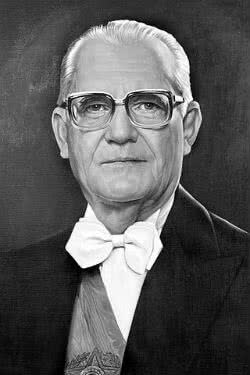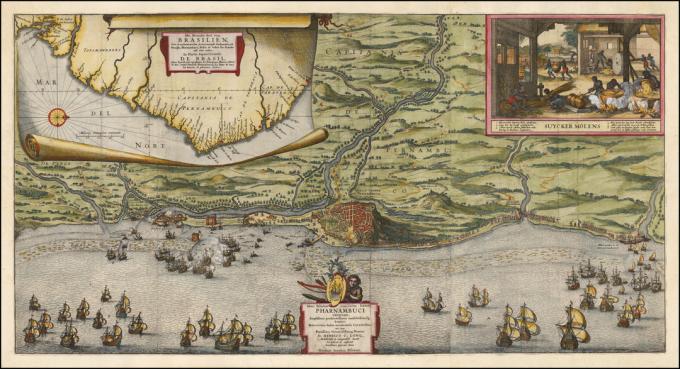Ernesto Geisel he was a military man, politician and the 29th President of the Republic of Brazil. He ruled the country from 1974 to 1979.
Biography

Ernesto Beckmann Geisel was born on August 3, 1907, in the city of Bento Gonçalves, Rio Grande do Sul. He was the son of German Lutherans Wilhelm August Geisel and Lydia Beckmann.
He studied at Colégio Martinho Lutero de Estrela, at Colégio Militar de Porto Alegre, and later at Escola Militar de Realengo, in Rio de Janeiro. For much of his life, Geisel served in the Brazilian army: from 1927 to 1969.
Of the four brothers, two of them also followed a military career: Henrique Geisel and Orlando Geisel. In 1940, he married Lucy Geisel, his second cousin.
During the government of President Castello Branco and after the 64 hit, Ernesto was appointed Chief Minister of the Military House during 1964 and 1967.
He was the 13th President of Petrobras and served from 1969 to 1973. In 1973, he was elected President of Brazil with 80% of the vote.
He died in Rio de Janeiro, on September 12, 1996, aged 89, a victim of cancer.
Ernesto Geisel's Government: Main Characteristics
General Geisel was the 4th president of the Military Dictatorship in Brazil. He was elected in 1973 and held office from March 15, 1974 to March 15, 1979. He was a representative of the so-called “Linha Dura” of the Brazilian army.
During his performance, the country's redemocratization process begins. In the economic sphere, his government was marked by a reduction in growth. The call economic miracle it's the Institutional Act No. 5 - AI-5 were extinct.
To keep the economy heated, Geisel created the “II National Development Plan” and also collaborated with the construction of the Itaipu Hydroelectric Power Plant.
During his government, Guanabara was annexed to Rio de Janeiro and the State of Mato Grosso was also divided into Mato Grosso do Sul.
In the area of transport, he participated in the inauguration of the first subway lines in the cities of São Paulo and Rio de Janeiro.
He forged diplomatic ties with China, and with Germany forged a nuclear deal.
On October 25, 1975, the journalist Vladimir Herzog he was assassinated at the headquarters of the DOI (Operations and Information Detachment) of Codi (Internal Defense Operations Center).
In 1985, six years after leaving the post of President of the country, Geisel supported the elections of Tancredo Neves, the first elected president after the military coup.
Learn more about Dictatorship Military in Brazil and Amnesty Law
Sentences
- “I'm a deeply democratic guy.”
- “Throughout my life I was unhappy.”
- “Our evil was that it lasted so long.”
- “It is very pretentious of man to invent that God created him in his image and likeness. Is it possible that God is that bad?”


